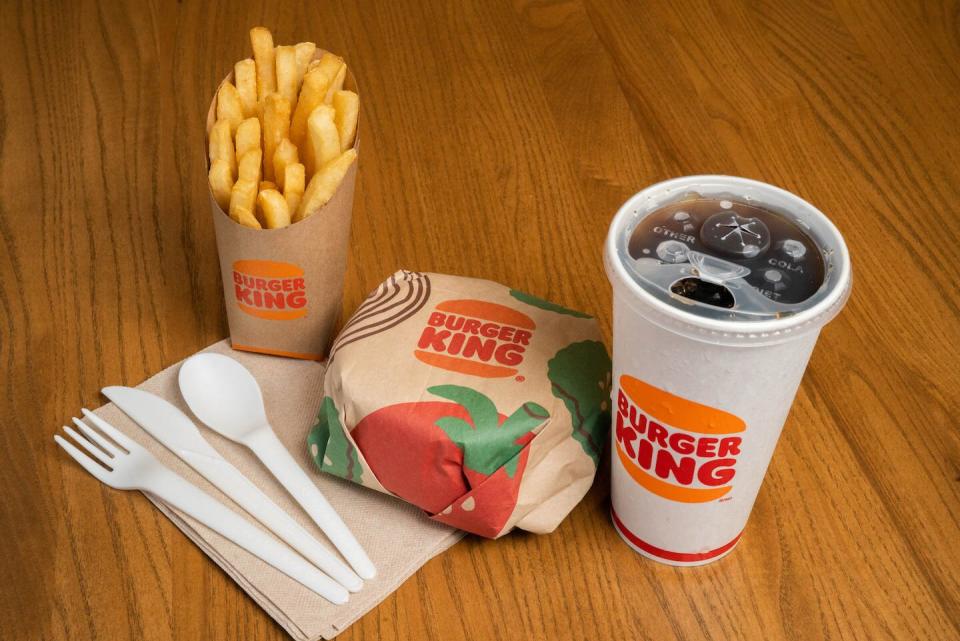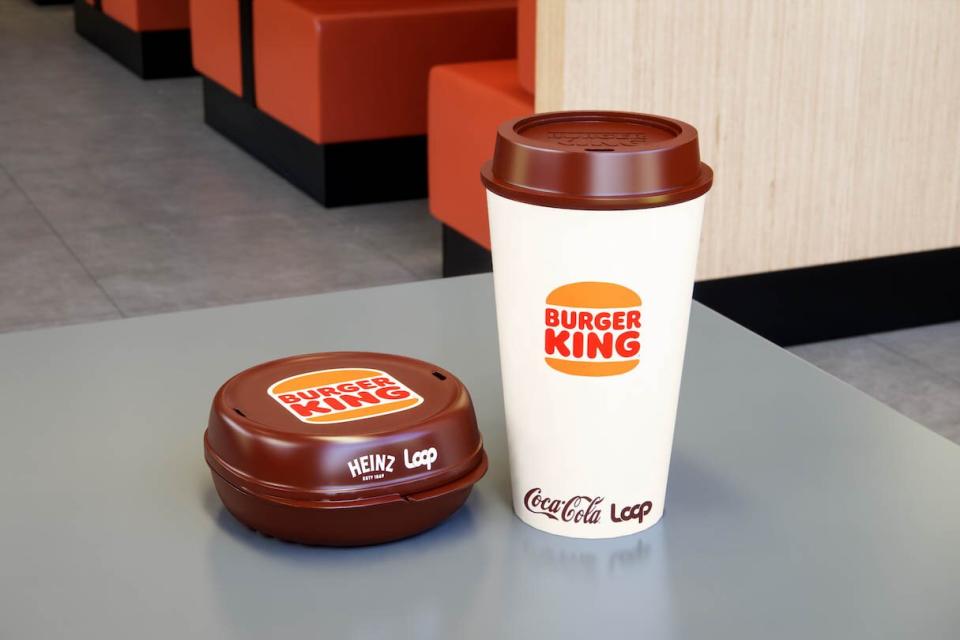Burger King Tests Eco-Friendly Packaging Options
Fast food restaurants are, at their core, symbols of modern excess: Customers can grab a specific meal at thousands of locations nationwide in under six minutes without leaving their car. But any other concerns aside, as the world battles a growing environmental crisis, the sheer scale of fast food chains offers a clear opportunity to start curbing waste and boosting sustainability—and increasingly, major chains are looking to do their part: whether its McDonald's testing plastic-free concept stores or Starbucks trialing an entirely plant-based store.

Burger King
Burger King has also been involved in this plight: helping to lead the way with plant-based burgers, ditching plastic toys in the U.K., and making a commitment to test reusable packaging.
Adding to that list, America's second largest burger chain announced that, starting today, 51 company-owned locations in the Miami area will begin testing "a green packaging pilot program focused on finding scalable solutions for eight of our most-used, guest-facing items including forks, spoons, knives, straws, drink lids, Frypods, Whopper wrappers and napkins."
It's a lot of items so let's look at the breakdown. The new Frypods (that's BK slang for their cup holder-friendly French fry packaging) are produced with renewable unbleached virgin paperboard. The green cutlery is being made from a plant-based plastic known as cPLA. And the napkins will feature 100-percent recycled fiber.
Finding replacements for traditional plastic straws has been an ongoing concern across the industry, and Burger King says they will be trailing a few different solutions—paper-based straws, plant-based straws, and strawless lids—hoping to eventually "eliminate up to 500 million single-use plastic straws annually from participating U.S. Burger King restaurants." The brand adds, "This action alone would translate to the removal of 910 metric tons of greenhouse gasses per year."
Finally, BK says they'll also be testing out two new types of Whopper wrappers: one that features a 13 percent reduction in paper and another that offers a 34 percent reduction in paper. "This could translate to an additional 500 to 1,500 metric tons of paper waste eliminated annually across the U.S.," the chain writes.
"Sustainable packaging is a cornerstone of our Restaurant Brands for Good journey, and this new pilot represents a huge opportunity for us to make a difference," Matthew Banton, Burger King's head of innovation and sustainability, said in the announcement. "We're optimistic about our progress and are committed to reducing waste to do our part in creating a more sustainable future."
Still, some may wonder, if these better solutions exist, why not bring them to the masses instead of just one city in Florida? Burger King attempts to preempt this question by explaining that smaller pilot programs such as this one allow the chain to "get direct feedback from guests on how the packages perform, make iterative changes with our supplier, and build an implementation roadmap for the system." They add that the lessons they learn in Miami will "inform our plans for nationwide sustainable packaging in the next year."

Burger King
Meanwhile, alongside this greener packaging program, Burger King also announced that, with its aforementioned reusable packaging pilot with Loop, the chain is now planning to include two more cities in that trial: hopefully adding Paris and London to the previously announced target cities of New York, Portland, and Tokyo. Burger King also mentioned that they've partnered with The Coca-Cola Company and Kraft Heinz to help "bring these initiatives to life." Though this reusable packaging program was announced back in October, the launch date has still not been locked down other to say that it should happen sometime this year.
